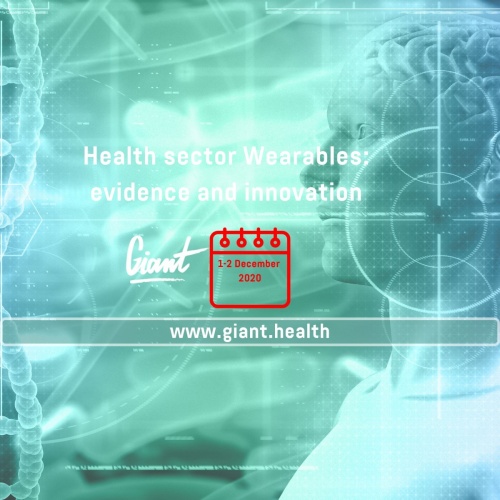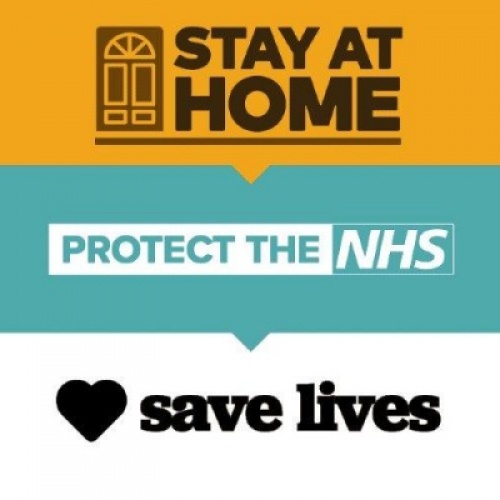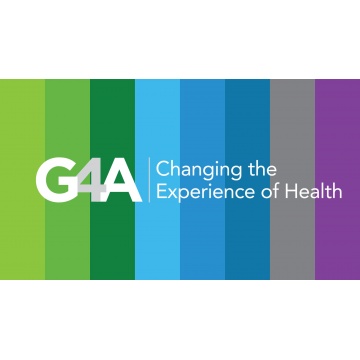Blog
A Tale Of Two Startups—Health Sector Innovation In A Time Of Crisis
When Prime Minister Boris Johnson was discharged from hospital after three days in intensive care, he wasted little time in lavishing fulsome praise on the treatment he received from Britain’s National Health Service (NHS). His words were doubtless heartfelt - Johnson had, after all, been admitted for treatment after an initially mild COVID-19 infection morphed into something more serious - but they also represented good politics. The Prime Minister would have been aware that even in more normal times, the NHS is, by far and away, Britain’s most popular public institution. And in the midst of the Coronavirus crisis, healthcare workers are the heroes and heroines of the hour. Thus, in describing the NHS as “unconquerable,” he was aligning himself with the mood of the nation while also talking up the ability of the service to deliver life-saving care in the most extreme of circumstances. But the NHS - like healthcare systems almost everywhere - is struggling to cope. It still faces shortages of personal protection equipment (PPE) and just at the moment admissions to hospital are expected to peak, many key members of staff are stuck in self-isolation having displayed COVID-19 symptoms. The problem of staff absence is exacerbated by a continuing shortfall in testing to confirm whether or not individuals actually do have the virus. Meanwhile, more widely, it seems unlikely that Britain’s public health authorities will hit their testing target any time soon. Without widespread testing, it will be difficult to come out of lockdown. Difficult times. This Emmy Winning Rapper & Best-Selling Author Founded A Billion Dollar Startup And Runs The Height Of Mount Everest For Fun The Keys To Making A World-Class Virtual Pitch Or Presentation As ETF Launches A £167 Million Fund Are Investors Warming To Profit And Purpose Ventures So what role, if any, can entrepreneurs working in the healthtech sector play in helping the NHS - and indeed providers - cope with the pressures created by the pandemic? Now, this is probably not the time to bang the gong for Britain’s tech entrepreneurs. Politicians, managers and clinicians are engaged in a battle to get ahead of the COVID-19 outbreak and they don’t necessarily have the time or energy to actively bring new services and solutions on board at any kind of pace. That said, in areas such as testing, staff deployment and even the supply of equipment, a few private-sector startup companies may be able to provide genuinely useful and meaningful help. The question is, how easy is it for healthtech startups to engage with government and the NHS at this time? I spoke to two businesses that have had very different experiences. Sourcing Staff Melissa Morris is CEO and co-founder of Lantum, a healthcare workforce management platform that matches clinical capacity with demand. Having managed to get a foot in Britain’s public health system by enabling primary healthcare providers to source locums, it is now also helping to manage staffing requirements for some of the tele-healthcare operations, clinics and treatment centers that are engaged in fighting the virus. As Morris explains, securing a foothold within Britain’s healthcare system wasn’t straightforward or easy, not least because the NHS is made up of a myriad of providers. And depending on the nature of the solution, procurement of third party products or services might be done at a national level or locally. In addition, regular restructuring of the health service can mean that it is difficult to keep track of where purchasing decisions are made. Morris cites her own experience. “I started my career working at NHS London,” she says. “That was expanded to become NHS England.” This change, she adds: “Made is impossible to pinpoint decision-makers.” Lantum decided to focus on primary care. “We went door to door talking to GP practices,” she says. “And as we began to build market share, we had more to talk about when we approached other potential customers. We built relationships. Today, Lantum has around 21,000 clinicians on its books and provides a service to 2,000 GP practices. According to Morris, it is become easier for tech-driven startups to get on the NHS radar screen. “Things have got better since the arrival of Matt Hancock as Health Secretary,” she says. “He started NHS X, a central hub that makes decisions on anything digital within the NHS.” Lantum also took part in NHS Innovate, an accelerator program. “That gave us exposure to senior figures,” Morris adds. In terms of the COVID-19 crisis, Morris says the relationships and links built up over time have enabled Lantum to supply not only staff management services but also vital data that is helping the NHS manage spikes in demand for clinicians. Sniffing Out The Virus Ancon Medical has, so far, had less success in building relationships within the NHS, despite developing a technology that could, according to CEO Wesley Baker, prove a game-changer in testing for COVID-19. Founded by Dr. Boris Gorbunov, Ancon Medical has created a device that can detect a range of illnesses by analyzing chemical biomarkers in human breath. The applications include the early detection of cancers, ebola and, crucially, Coronaviruses. “We did a trial in the US to detect influenza viruses, “ says Baker. “We were blown away. We detected six cases of Coronavirus. We know we can do virus detection and we know we can detect Coronavirus.” Baker has spoken with Health Secretary Matt Hancock but, to date, the company hasn’t succeeded in persuading the U.K. or the E.U. to sanction trials. “However, we are getting traction in the U.S.,” Baker adds. And while Baker welcomes the creation of NHS X, so far it hasn’t helped Ancon, So what happens next? Baker says Ancon Medical’s tech offers a faster (results come back very quickly) and more cost-effective means to test for illnesses than conventional methods. It is also non-invasive, which may be a relief for those who currently face tests that involve swabs being inserted uncomfortably into the subject’s nostrils. In a bid to get that message across, Baker has spoken to his local MP and the company has also been in contact with former government health ministers, who may be able to provide introductions. Ancon is playing a longer game. Once a disease has been profiled the device can be applied to a wide range of analysis tasks. As such, the company’s selling point extends far beyond the current crisis. There is, however, clear frustration at the progress to date, given that the company's technology has already been used by the miltary in areas such as germ warfare detection. Given the growing size of the healthtech startup community - both here in the U.K. and elsewhere - the chances are a whole range of useful solutions are waiting to be deployed. But the truth is that public healthcare systems are often not easy to access and where tests and treatments are concerned adoption tends to be (rightly) a lengthy process due to the tests required. And truth to tell, while new solutions will be needed to face down the Coronavirus threat, the intensity of the crisis also limits the bandwidth that decision makers have at their disposal to make proper assessments.
Read moreHow the Covid-19 pandemic has put the UK healthtech sector centre stage
The UK’s healthtech sector has rallied its world-class talent and skills to help in the fight against Covid-19. Startups and scaleups have found themselves working side by side with large-scale, global tech companies towards the common goal of providing new and much-required services and technology. From tracking cases to supporting front-line staff; loaning vital equipment and resources; providing online patient care; and gathering and analysing data; tech companies large and small across the country are rising to the challenge to help the government and the NHS. “Over the last month the UK’s healthtech sector has shown why it is a global leader, quickly using its expertise to develop practical solutions to help the government and the NHS with innovative products and services to respond to those in need. These new technologies will not only help in the here and now but they will also shape the future of healthcare in the UK and indeed across the world. We owe a huge debt of gratitude to the startups and tech companies that have switched their entire focus to backing the national effort to tackle this health crisis.” Caroline Dinenage, Minister of State for Digital “We are seeing scaleups making huge leaps that would normally take years, in just a few weeks. The UK’s healthtech sector has grown in size and value in recent years and has taken an increasing level of investment from venture capital backers. That puts the sector in a strong position right now and it is brilliant to see the sector using its resources to step up to the challenge.” Gerard Grech, Chief Executive of Tech Nation The UK healthtech sector has been able to step up because it is one of the strongest in the world, having attracted $7.7bn (£6.2bn) from global venture capital investors over the last five years, according to data from Tech Nation’s Data Commons, provided by Dealroom.co. Healthtech is now the second biggest sub-set of the UK tech sector after fintech and there are more than 100 healthtech companies that are on track to become $1bn businesses. The rapid switch to digital communication and tools across the sector, in the face of the crisis, is likely to have a profound impact on how quickly digital healthcare becomes part of the healthcare system in the next few years. “Tech can help the country deal with coronavirus. Digital tools are vital, whether they work to collect data or to connect patients with clinical staff. I’m delighted that so many startups and innovative tech businesses have offered their skills, talent and ideas to help us.” Matthew Gould, CEO of NHSX “Push Doctor is and always has been passionate about supporting digital technology throughout the NHS. Our partnership and collaborative approach with the NHS over the past few years has allowed our partners to see the benefits of telemedicine and digital healthcare overall. I am proud to see a number of digital providers collectively coming together to support the crisis and ensuring our heroic NHS staff are exposed to the virus as little as possible.” Wais Shaifta, Chief Executive Officer of Push Doctor In six of the last seven years, investment in UK healthtech has been the highest in Europe and the number of companies in the sector has increased by more than 25% since 2015. During 2019 the sector received $2.3bn in venture capital backing, almost double that of France, the next highest recipient. The companies in the sector have a combined turnover of £24 billion and employ more than 127,400 people across 3,860 businesses. “For a long time we have been talking about the potential for better use of data and AI in healthcare and digital delivery of care and tools to support front-line clinicians. Now we are getting the chance to use these for real on a mass scale. The crisis is giving healthtech companies the chance to show what they can do and the response from the many companies who have got involved demonstrates that we do have the talent and skills here to build globally significant healthtech companies.” Julia Hawkins, partner at LocalGlobe This comes as the Chancellor announced UK businesses driving innovation and development hit by Covid-19 will be helped with a £1.25 billion government support package. This includes a £500 million investment fund for high-growth companies, made up of funding from government and the private sector to protect these businesses and enable the unicorns of tomorrow to thrive. Fast-moving solutions The fast-moving and quick changing nature of Covid-19 has required a response similar in speed and agility. The UK healthtech sector’s quick response has been nothing short of inspiring. Oxford Nanopore Technologies has provided its suite of sequencing products to countries worldwide, to help with the research and genetic epidemiology of the SARS-CoV-2 virus. Gordon Sanghera, CEO, Oxford Nanopore said “The scientific community has been quick to use sequencing technologies to understand the transmission of coronavirus, and whether the SARS-CoV-2 virus itself is changing, as well as the effect of other pathogens that are present alongside the virus. This information will also be a vital tool for public health authorities as they manage a responsible lifting of restrictions, in countries across the world. We are committed to supporting scientists using Oxford Nanopore’s technology for this important work, and while we do that our R&D teams continue to innovate for coronavirus.” BenevolentAI, who recently joined Future Fifty 8.0 have already identified a potential Covid-19 treatment that has moved forward to clinical testing. “Life sciences and technology companies have a duty to mobilise resources for the public good in this global health emergency that has already claimed so many lives. That’s why we turned our AI drug discovery and development platform toward understanding the body’s response to coronavirus and exploring existing medicines with the potential to address the life threatening complications of the disease. We’re pleased that the Eli Lilly drug we identified as a potential treatment for its anti-viral and anti-inflammatory properties has already been moved forward to clinical testing in America and we look forward to the results.” Baroness Joanna Shields, CEO, BenevolentAI AccuRx, a trusted tool for UK GPs to send text messages to patients, built a video consultation product over a single weekend, which is now being used by over 90% of GP practices and for online appointments. CEO and Co-founder, Jacob Haddad of accuRx said “NHS staff need to have safe, reliable and intuitive ways of communicating with patients and colleagues, and the crisis has made this need more acute than ever. Building a video consultation product over a weekend was one of the first ways that we were able to achieve that and we have already released a range of other features to support frontline staff. GP practices and hospitals are being forced to make these changes to stay safe and maintain routine services. When the pandemic is over, we will have seen a decade of digital transformation take place.” Supporting those on the ground Giving vital support to the people on the frontlines who are tackling the virus head-on is one of the most immediate ways that healthtech has been helping. Healthtech unicorn and Future Fifty 8.0 cohort member Babylon’s 24/7 GP at Hand app and Covid-19 Care Assistant app, a symptom tracker, are providing much needed relief for the UK’s 111 services. “Right now we are seeing huge demand for our services and have been given contracts to serve 8% of the population of England with our digital first coronavirus Care Assistant. We are determined to help play our part across all our communities globally. As we are seeing through the course of this pandemic, while the burden of healthcare is global, the solutions have to be localised to meet the specific needs and culture of each country.” Dr Ali Parsa, founder and CEO of Babylon Microsoft UK has given all users of NHSmail in England and Scotland access to Teams, its workplace collaboration platform, for three months.They’ve also teamed up with Google, Palantir, AWS and Faculty to support NHSX and NHS England’s technical teams in developing a data platform that provides safe, secure, reliable and timely data. “Supporting the NHS and the UK’s healthcare system has never been more vital. We are proud to arm the most talented healthcare professionals in the world with safe, secure and robust technology solutions, empowering them to make the decisions required to deliver world-class care to those who need it.” Cindy Rose, CEO, Microsoft UK London-based Doctor Care Anywhere are giving free training for GPs in the UK to help them manage and conduct video consultations, and temporary staffing platforms Patchwork Health and OnCare have made their systems free for NHS Trusts, and care workers. Warrington’s Blue Prism has donated ‘robot workers’ to the NHS to help Trusts automate manual processes from hiring staff to increasing video patient consultations. Tackling the mental toll UK healthtech is also considering the mental health impact of the pandemic, with many NHS workers experiencing high levels of physical and emotional stress. Unmind, the British mental-health platform that empowers organisations and employees to measurably improve their mental wellbeing are offering free access to NHS staff. Meditation app Headspace is also providing its app for free to NHS staff. The app assists meditation and increases mindfulness. Big Health, another UK healthtech, is offering over 1 million NHS staff the Sleepio and Daylight apps free. Sleepio is a cognitive and behavioural app that aims to improve sleep – something that is so important to those on the frontline, and Daylight guides its users through issues of worry and anxiety.
Read moreA Quick Guide to CBD - written by CBD specialist Dr Julie Moltke
A Quick Guide to CBD: Everything you need to know Dr Julie Moltke has written this book about one of the most important topics of our time: cannabis. This book teaches you about the properties of the plant, what CBD…
Read moreHealth sector Wearables: evidence and innovation⌚️
This conference track will balance taking a wide view, an examination of applications making a real difference to people and the science underpinning what is a rapidly moving opportunity. Find more information here.
Read moreWe are incredibly excited to announce that GIANT Health goes VIRTUAL!
We are incredibly excited to announce that GIANT Health goes VIRTUAL! After 6 years of significant growth, delivering world-leading real-world, face to face events #GIANT2020 will be a virtual gathering. Buy Super Early Bird tickets at an affordable price here.
Read moreJust 1 day from now we will have some great news for you
Countdown until EXCITING ANNOUNCEMENT Stay tuned... Save the date ⇒ 15 July 2020 ►1 day from now we will have some great news for you
Read moreWalk With Path is working on developing second mobility device Path Feel which will help people with diabetes who suffer from peripheral neuropathy
Walk With Path is a medtech company developing solutions to irregular gait in chronic diseases, such as Parkinson’s, diabetes, stroke and multiple sclerosis. The main goal is to improve mobility through injury prevention and user-centered design creating social impact in…
Read moreIn 2018 Parkinson’s Concierge Ltd attended the Giant Event in November as guests.
In 2018 Parkinson’s Concierge Ltd attended the Giant Event in November as guests. "This is really where our path led us to Patient Engagement. We met many of our intial business contacts here. Including meeting one of our “Key Partners”…
Read moreHealth Foundry collaborated with talkhealth, one of the leading online health communities, in producing a tailored “mywellbeing” support programme
Over the past few months, Health Foundry has been very busy, despite not being in our co-working space! They’ve been working hard to provide weekly Lunch and Learn webinars on a range of topics from grant funding to accelerator programme…
Read moreExploristics launched their new version of the proprietary software Kerus Cloud 2 end of April
Exploristics is an established, fast growing enabling technology company providing world-class analytics and specialised software products for clinical-stage life science organisations. Their experienced statisticians and programmers develop intellectual property and assets to support the design and analysis of clinical trials,…
Read moreWould you like to become a part of Bayer's initiative? | The 2020 G4A Partnership Program
Call for Applications Bayer G4A Partnerships 2020 | https://www.g4a.health/partnerships Digital health is changing the world. From chronic disease management to prevention, G4A’s goal is to empower people with the tools and access they need to take control of their health. G4A does this through partnering with a diverse and vibrant ecosystem of digital health companies. The 2020 G4A Partnership Program is now open for applications! This year G4A is seeking to collaborate with companies that are making an impact in the following areas: Cardiometabolic and Renal Diseases – Heart health requires a 360-approach that encompasses lifestyle behaviors, remote monitoring, biomarker review, risk stratification, and more Oncology – Utilizing targeted therapies and patient performance technologies can identify patients efficiently and slow disease progression Women’s Health – Novel approaches are needed to manage gynecological conditions such as PCOS and Endometriosis, as well as Menopause, and provide answers to the unique needs of women’s health Pharmacovigilance – The opportunity for innovation in drug safety is huge, specifically as it relates to adverse event detection G4A’s 2020 Partnership Program offers two tracks for participation. The Growth Track is designed for early-stage companies (Seed-Series A) while the Advance Track is for companies which already have traction in the market with a product or service. Selected partners will expand their reach and provide valuable solutions in healthcare together with Bayer G4A’s guidance. Applications are now open till July 30th. More information about G4A’s challenges on: https://www.g4a.health/partnerships ============ Since its launch in 2013, Bayer has supported over 150 digital health companies resulting in more than 30 direct collaborations. Bayer now operates G4A in more than 13 countries, developing and promoting collaborative health care technology projects around the world.
Read moreCoronavirus: How amateur (ham) radio is connecting people during lockdown
Amateur (ham) radio use in the UK has seen a "significant" rise during the coronavirus lockdown as people seek new ways of staying connected. The national body that represents users - the Radio Society of Great Britain (RSGB) - has said…
Read more
 Attendees
Attendees Sponsors and
Exhibitors
Sponsors and
Exhibitors
 Media
Media
 Contact us
Contact us











